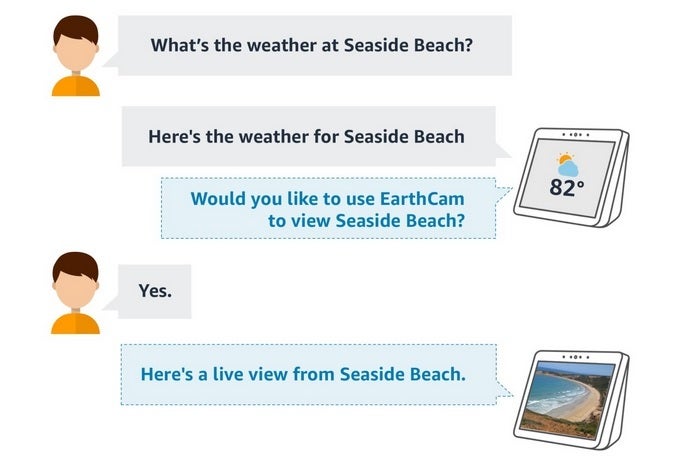It's almost as if Alexa can read your mind

Amazon announced today that it has improved its Alexa digital assistant using Machine Learning technology. Amazon says that the digital assistant can now guess at what a user's latent goals are. These are the goals that a user hopes to achieve during a conversation but are not stated expressly by him or her. Amazon has an example; if someone asks Alexa "How long does it take to steep tea?" the goal could be to set a timer for steeping a cup of tea.
With the improvement to Alexa, the assistant might now respond to the question by stating, "Five minutes is a good place to start," and then follow up by asking, "Would you like me to set a timer for five minutes?" Amazon says that as simple as this sounds, a number of algorithms are in play here trying to determine what the user's latent goals are. Sometimes this can't be achieved. Amazon gave one example where someone asked Alexa for chicken recipes and the response was "Do you want me to play chicken sounds?"

Illustration shows how Alexa can infer what information the user needs from Alexa without specifically asking for it
Amazon says, "To determine whether to suggest a latent goal, we use a deep-learning-based trigger model that factors in several aspects of the dialogue context, such as the text of the customer’s current session with Alexa and whether the customer has engaged with Alexa’s multi-skill suggestions in the past. If the trigger model finds the context suitable, the system suggests a skill to service the latent goal. Those suggestions are based on relationships learned by the latent-goal discovery model. For instance, the model may have discovered that customers who ask how long tea should steep frequently follow up by asking Alexa to set a timer for that amount of time."
In September, Amazon launched natural turn-taking which allows the user to converse with the digital assistant without having to speak the wake word. Now, with Alexa's improved machine learning technology, Alexa could be one step ahead of its rivals. The key, of course, is to somehow figure out what the intent of the user is; once that is accomplished, Alexa might be able to complete a subsequent request without being asked to do so.
Google Assistant is arguably the best of the digital helpers and Google has a feature called "Continued Conversation" that allows users to engage in a conversation with Google Assistant without having to use the wake word to continue the conversation. This feature is limited to Google's smart displays and smart speakers.
Follow us on Google News













Things that are NOT allowed:
To help keep our community safe and free from spam, we apply temporary limits to newly created accounts: